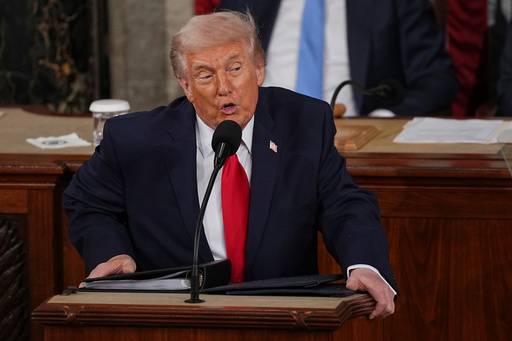‘Eureka!’ Azcuna poses new argument vs SC impeach ruling

It could all boil down to this clarification: It’s “once a year,” not “one a year.”
Retired Supreme Court Justice Adolf Azcuna on Saturday said that a careful reading of a key provision on impeachment in the Constitution could settle the controversy over whether Vice President Sara Duterte was properly impeached or not.
Azcuna, one of the framers of the 1987 Constitution, was referring to Article XI, Section 3(5), which states that “no impeachment proceedings shall be initiated against the same official more than once within a period of one year.”
It was the supposed violation of this provision that moved the high court to rule on July 25 that the fourth impeachment complaint endorsed by 215 members of the House of Representatives was unconstitutional, in addition to the violation of Duterte’s right to due process.
All about frequency
The court said the three other complaints were deemed to have been initiated as they had been archived. The fourth complaint then was barred by the prohibition against more than one impeachment proceeding within a year.
Azcuna said that there was no violation of that particular provision at all.
“We confused once a year with ‘one a year,’” he told the Inquirer in an interview.
“The rule is not against the number of impeachment proceedings but against the frequency of impeachment proceedings.”
He reasoned that essentially all four impeachment complaints against Duterte were all “acted upon” by the House on Feb. 5—whether archived, as what happened to the first three, or endorsed, as the fourth was before its transmission on the same day to the Senate for trial.
He said that “the sequence doesn’t matter” because the House acted on all four on the same day.
‘Eureka!’ moment
Therefore, Azcuna said, “they don’t bar each other (under the one-year rule) because their initiations did not take place beyond the time of ‘once a year.’”
“All four complaints were therefore subject of initiation proceedings confined to one day. So, it cannot be considered as occurring MORE than ONCE in a year because it did not go beyond the smallest unit of a year,” which is the day, he said.
“So the decision errs in saying the Fourth Complaint, which became the Articles (of Impeachment) in the case, was barred by the rule against initiating impeachment proceedings more than once within a period of one year,” Azcuna said.
It was this “Eureka!” moment that he shared on his Facebook page early Saturday morning.
“I just realized that the Constitution does not say NOT MORE THAN ONE A YEAR. It says NOT MORE THAN ONCE A YEAR,” he said. “So the four initiated complaints on the same day were initiations done once within one year.”
Contentious enough
Azcuna was one of the first legal luminaries to assail the court’s July 25 decision, criticizing it for, among other things, imposing the due process standard even when the right to life, liberty and property of the official to be impeached wasn’t being threatened by removal from office.
He also questioned the retroactive application of the court’s new definition of when an impeachment complaint had been initiated. Azcuna also said that the new guidelines it imposed on the impeachment process amounted to judicial overreach into the exclusive power of the House to initiate impeachment.
The former justice made a novel argument to a contentious constitutional provision, but which also shows “the variety of ways to understand this provision,” according to professor Paolo Tamase, who teaches constitutional law at the University of the Philippines.
Oral argument
This matter could have been “threshed out” had the Supreme Court called an oral argument and invited “amici curiae” (friends of the court), who are legal experts, to participate, Tamase said.
In voting unanimously to declare Duterte’s impeachment unconstitutional, the court said that the archiving of the first three impeachment complaints triggered the one-year ban and that the fourth complaint was barred.
Three civil society groups as well as the House prosecution panel have appealed the ruling and argued that the court had mixed up the timeline: the House as a plenary voted first to transmit the fourth impeachment complaint before it archived the first three.
Francisco case ruling
One of the most contested issues in the ruling penned by Senior Associate Justice Marvic Leonen is that it contravenes standard set on “initiation” established by Francisco v. House and Gutierrez v. Committee on Justice.
The Francisco ruling says that initiation of an impeachment complaint by the House consists of filing a complaint and its referral to the proper committee, which did not happen to the first three impeachment complaints against Duterte filed on Dec. 2, Dec. 4, and Dec. 19.
Instead, the House lawmakers had drafted and endorsed a fourth complaint, which they submitted to the Senate on Feb. 5. The first three complaints were then archived after the transmission of the fourth.
But even allowing for the new Supreme Court rules on initiation, Azcuna said, the distinction between “once a year” and “one a year” means that four complaints were initiated on that one session day, Feb. 5.
The distinction, he said, lies in the words themselves: “One” is a noun referring to a number, while “once” is an adverb referring to frequency.
The reason that the framers of the Constitution introduced the once-a-year restriction is to limit the amount of time taken away from official duties of both the impeached official and the House, which has the sole prerogative to initiate impeachment proceedings.
Just the start
According to Azcuna, initiation “is just the start.”
“The House, initiated per Supreme Court’s new definition, the three archived complaints. The fourth complaint was the one adopted by HR and sent to the Senate. It was thus initiated and completed also that same single day,” the former justice said.
For Tamase, however, the Francisco ruling which the House used as its basis to file the articles of impeachment was already a good way of dealing with the once-a-year rule.
Whether the court could rethink its decision based on this new argument remains to be seen. However, the high tribunal has in the past also had “wrong” interpretations of issues, such as how to interpret Congress’ power of appropriations, he said.
Tamase recalled that the court permitted pork barrel in the 1990s and 2000, only to prohibit it in 2013. “But when the Court did so (correctly) in 2013, it applied the doctrine prospectively via operative fact,” or its implementation in the future, he said.
Tamase said that while there was “merit to seeing a Constitution that moves with the times, there are ‘bright line’ rules that just aren’t supposed to be changing with every situation. The Court’s one-year bar definition has stood for two decades. The House relied on that.”





















